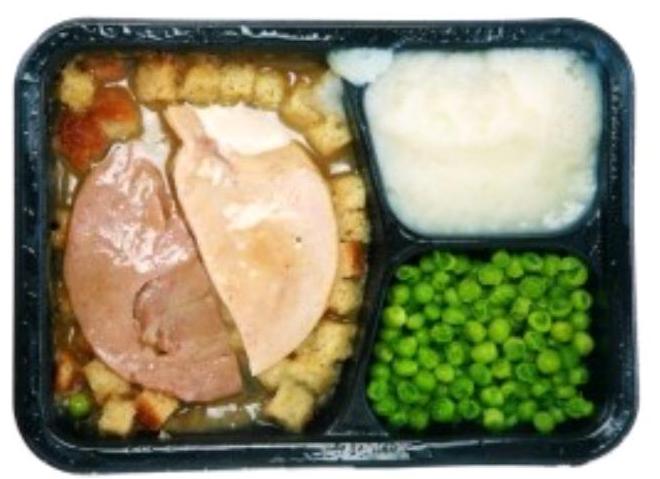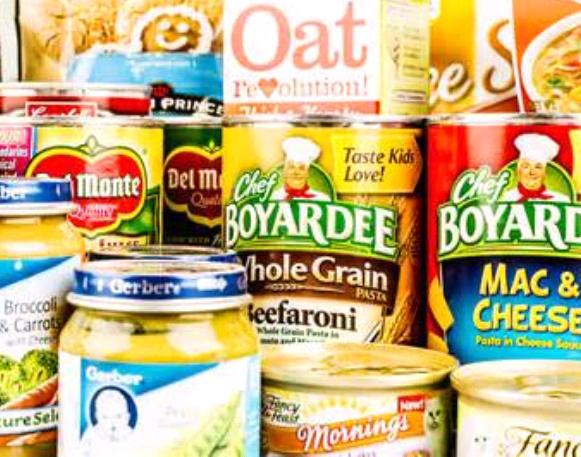 Every time you turn around the headlines are screaming about another food recall. E-coli, listeria, e-coli and avian flu issues have us rethinking where we dine or what we put into our grocery carts and into our mouths. The Chipotle e-coli issues leave us less likely to be craving Mexican food at that establishment, even though they are cleared of contamination issues and back in business again. We may want to eat healthy by eating more produce, but then we worry about listeria-contaminated lettuce or consuming supposedly “pre-washed produce” like bagged coleslaw or lettuce, only to find a large manufacturer like Dole is sweeping them off the shelves in a massive recall. Even a treat like ice cream was contaminated with listeria causing Blue Bell, a manufacturer established way back in 1907, to halt production of this frozen treat while they determined the source of contamination. The avian flu has us scrambling to find organic eggs or just doing without eggs altogether.
Every time you turn around the headlines are screaming about another food recall. E-coli, listeria, e-coli and avian flu issues have us rethinking where we dine or what we put into our grocery carts and into our mouths. The Chipotle e-coli issues leave us less likely to be craving Mexican food at that establishment, even though they are cleared of contamination issues and back in business again. We may want to eat healthy by eating more produce, but then we worry about listeria-contaminated lettuce or consuming supposedly “pre-washed produce” like bagged coleslaw or lettuce, only to find a large manufacturer like Dole is sweeping them off the shelves in a massive recall. Even a treat like ice cream was contaminated with listeria causing Blue Bell, a manufacturer established way back in 1907, to halt production of this frozen treat while they determined the source of contamination. The avian flu has us scrambling to find organic eggs or just doing without eggs altogether.
It’s a scary time when you must constantly keep abreast of the headlines regarding the food that you love. How do we find a proper balance between “eat to live” and “live to eat”? We are told to eat healthy to live longer, so … what do we do: grow our own fruits and veggies? That’s fine if you live in a temperate climate and have a garden all year around, but if you live in a cold-weather state, this is not an option, even growing your veggies in greenhouse conditions is not possible. And, really – how many of us can keep chickens in our backyard to ensure farm fresh eggs with no avian flu contamination and free-range chickens that are not cooped up in too-small cages?
Processed pantry items
While the media does its very best to keep us advised of contamination in the foods we so enjoy, there are dangers afoot in the processed foods that we consume on a regular basis. Well, here we go again. We live in an age where we wake up with an busy agenda and we’re lucky to accomplish most of that by day’s end. We simply do not have the time, nor the inclination, to factor into our schedule healthy food prep to ensure we are eating smart to stay healthy, so we resort to “meal helpers” like canned soups or noodle-type dishes to get a hot meal on the table for dinner.
Unfortunately, manufacturers must add chemicals and artificial substances before canning or bagging the food for you the consumer. Since these items may not be eaten for months, or even years in some cases, preservatives must be added to these items. Thus, any food that has been chemically processed and made solely from refined ingredients and artificial substances, is referred to generally as “processed food”.
Sodium is the biggest culprit
You might think that eliminating that shake of salt from the packet that accompanies your fast food fries is being proactive to cutting down on your salt intake. But, what about that canned New England clam chowder you enjoy so much? Very few of us would take the time to make our own clam chowder, so we resort to a quick and easy treat by buying the canned soup. A glance at the nutrition label of a popular brand of this treat shows the sodium count at nearly 900 mg for one serving which is a half-can of soup. I don’t know about you, but I need a whole can of that rich and creamy soup to fill me up. The latest government nutrition guidelines recommend consuming no more than 2300 mg of sodium per day if you are healthy and under 51 years old – 51 years and older should limit sodium intake to 1,500 mg a day. Depending on your age, you most likely blew most of your recommended sodium allowance for the day on that delicious dish of New England clam chowder.
Sugary foods

Processed foods are usually loaded with added sugar, or even jam-packed with high fructose corn syrup. Sugary substances consumed in excess is harmful to not only your teeth but affect your metabolism causing spikes in your blood sugar. This is because sugar has “empty” calories. It gives you an energy boost, but that boost has no nutritional value – zilch. And it leaves you hankering for more carbs and more sugar, which becomes an endless, vicious circle. But, your craving for additional sweets or sugar-laden foods does more than hurt your waistline, because excess sugar consumption is strongly associated with some of the world’s leading killers heart disease, diabetes, obesity and cancer. Maybe you might want to re-think shoveling extra spoonfuls of sugar into your coffee or on top of your cereal. Now is the time to cut down on sugary soda drinks or excess fruit juices as well and opt for water and fresh fruit instead. One of the biggest health tips out there is to avoid processed food whenever possible; instead of a meal from a box, make it from scratch, and instead of chips or a cookie eat a piece of fruit or a veggie. If you follow these simple health tips you will live a longer, healthier and happier life!
Read the labels carefully
Obviously, you cannot forsake every single processed food item because you simply cannot grow your own ingredients and make your own food 100% of the time. There just aren’t the resources, nor the time, to get this done. But, first you must be proactive and study the processed, packaged food in your pantry or on your grocer’s shelves and see what you’ve been ingesting all along. Most of the ingredients aren’t even real food, but are artificial chemicals which have been added for various purposes.
Don’t be taken in by the key words “no-fat”, “low-fat”, “heart-healthy”, “carb-friendly” as those words will lure you into buying the product. To ensure you understand the differences between these descriptions, be sure to check out the FDA’s website where they give a comprehensive breakdown of nutrition guidelines.
Don’t be swayed
While a mindset of “if it is organic it’s good for me” is better than just eating what you want without a care toward its nutritional value, you should remember that organic sugar is still sugar and sea salt still gives you a sodium intake boost, so choose these foods in moderation. Even if you tell yourself that it is fine and dandy to eat organic snacks like kale chips, fruity yogurt drinks or naturally sweetened cookies, it is better to just forego these snacks and munch on healthful fruits and veggies and aim to factor more water consumption into your day. Your waistline and body will thank you a hundred times over.
Hopefully, these top health tips will get you on the straight and narrow nutritionally and ensure a healthy and productive life for many years to come.

